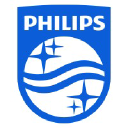Principal Software Architect - Serviceability

Philips
Principal Software Architect - Serviceability
Philips is a global leader in health technology, committed to improving billions of lives worldwide and striving to make the world healthier and more sustainable through innovation. We are 80,000+ unique individuals united by a shared purpose and a relentless determination to deliver on our customers' needs. In this role, you have the opportunity to make Serviceability better.
As a Principal Software Architect – Serviceability, you will own the architectural vision for intelligent serviceability spanning from device to cloud connectivity and serviceability across multi-product, multi-modality ecosystem. You'll translate strategy into platform architectures—spanning medical-grade device diagnostics and cloud implementation (AWS)—and guide adoption across teams to deliver reliable, compliant, and cost-effective outcomes over a 12–18 month horizon.
Your Responsibilities:
- Architect the serviceability platform: Define reference and platform architectures for medical-grade device and cloud-based serviceability, including telemetry, diagnostics, secure remote access, over-the-air updates, and incident response workflows.
- Design device-centric serviceability: Specify and validate medical-grade device service interfaces (APIs/diagnostic endpoints), local logging and remote software distribution strategies, service modes, field-service tooling, and connectivity workflows.
- Lead cloud implementation on AWS: Design and guide implementations leveraging AWS services (IoT Core, EKS, Lambda, API Gateway, CloudWatch, Kinesis, S3), with patterns for multi-tenant, compliant operations.
- Drive platform reuse and inner-source: Establish modular plugin frameworks and shared components to accelerate feature delivery across product lines.
- Coach architecture practices: Mentor teams on adaptive governance, architectural decision records (ADRs), and measurable non-functional requirements (reliability, maintainability, observability, cost).
- Influence strategy & trade-offs: Partner with product, R&D, DevOps, and customer-facing teams to align roadmaps, manage risks, and resolve escalations.
- Embed regulatory awareness: Ensure designs incorporate clinical/regional regulations, privacy, and data-residency/embargo considerations from the outset.
Key Focus Areas
- Medical-Grade Device Serviceability: Robust diagnostic modes, secure local access, structured logging, and resilient update/rollback strategies.
- Cloud & Fleet Operations (AWS): Scalable ingestion, fleet management, observability, and run-cost optimization.
- Design Diversity & Commonality: Balance extensibility with common building blocks and guidelines.
- Reliability & Sustainability: Architect for uptime, MTTR reduction, and total cost of ownership.
- Regulatory Awareness: Bake in privacy, data protection, and regional/regulatory constraints.
Competencies for Success
- Stakeholder Influence & Storytelling: Communicate architecture intent clearly, build alignment, and inspire adoption across diverse stakeholders.
- Business Strategy Alignment: Customer-centric, outcome-driven decisions with risk-based thinking.
- Critical Thinking & Adaptability: Comfort with ambiguity; challenge assumptions with data; iterate quickly.
- Cross-Domain Collaboration: Orchestrate efforts across software, systems, cloud/DevOps, security, and service operations.
Required Skills and Experience
- MS or PhD in Computer Science, Software Engineering, or related field.
- Industry experience 15+ years.
- 10+ years in software architecture, preferably in healthcare or other regulated industries.
- Proven delivery of serviceability/diagnostics platforms, including remote monitoring, fleet/device management, and field-service workflows.
- Deep experience with platform-based architecture and plugin frameworks; demonstrated inner-source leadership.
- Hands-on architecture and delivery experience with AWS for production systems.
- Strong leadership, analytical, and communication skills with a track record of guiding complex, multi-team initiatives. Business acumen and ability to differentiate and translate requirements from a platform perspective, ensuring scalability and reuse across product lines.
Nice to Have (Preferred)
- Cybersecurity: Security-by-design patterns; threat modeling; SBOM practices; secure update mechanisms; familiarity with ISO 27001/NIST; collaboration with product security teams.
- Regulatory Frameworks: Working knowledge of FDA, MDR, HIPAA and their implications for cloud/device telemetry and service access.
- Edge/IoT: Gateway patterns, device identity/attestation, and offline-first designs.
- Observability: Distributed tracing, SLOs/error budgets, and proactive incident management
Skill Area:
- Cloud (AWS)
- Medical-Grade Device Serviceability
- Fleet & IoT Patterns
- Platform Architecture & Plugins
- Observability & Telemetry
- API & Integration
- Resilience & Reliability
Good To Have:
- DevOps & Delivery
- Compliance & Privacy
- Data & Stream Processing
- Cybersecurity (Preferred)
- Edge/Offline Patterns
- Data Modeling & Storage
- Hands-on Engineering
Soft Skills:
- Stakeholder Influence & Storytelling
- Business Strategy & Platform Thinking
- Critical Thinking & Decision-Making
- Adaptive Governance & Coaching
- Cross-Domain Collaboration
- Leadership & Mentorship
- Innovation & Continuous Improvement
- Adaptability & Comfort with Ambiguity
How we work together: We believe that we are better together than apart. For our office-based teams, this means working in-person at least 3 days per week. Onsite roles require full-time presence in the company's facilities. Field roles are most effectively done outside of the company's main facilities, generally at the customers' or suppliers' locations. Indicate if this role is an office/field/onsite role.
About Philips: We are a health technology company. We built our entire company around the belief that every human matters, and we won't stop until everybody everywhere has access to the quality healthcare that we all deserve. Do the work of your life to help the lives of others.